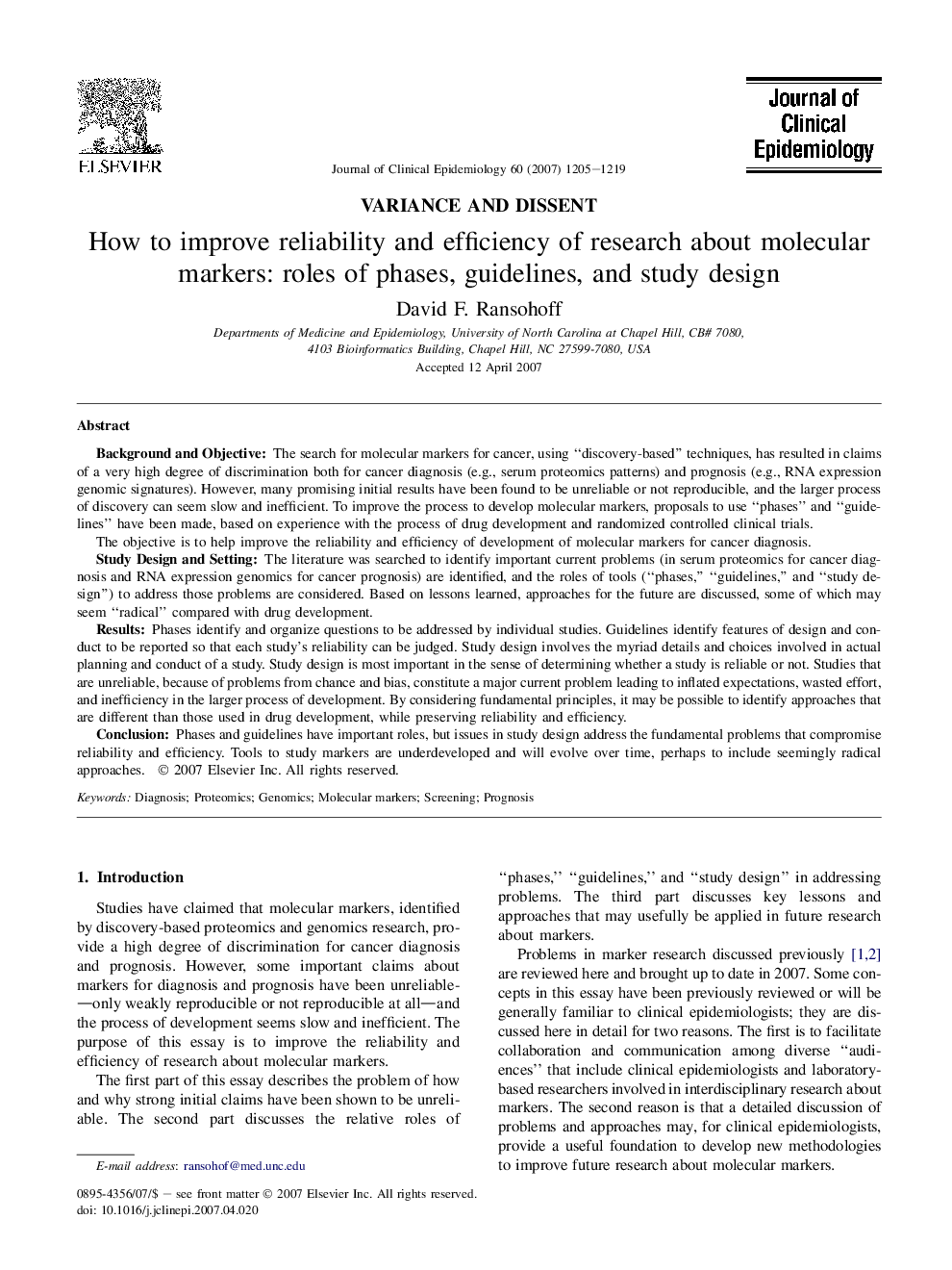| کد مقاله | کد نشریه | سال انتشار | مقاله انگلیسی | نسخه تمام متن |
|---|---|---|---|---|
| 1083052 | 1486858 | 2007 | 15 صفحه PDF | دانلود رایگان |

Background and ObjectiveThe search for molecular markers for cancer, using “discovery-based” techniques, has resulted in claims of a very high degree of discrimination both for cancer diagnosis (e.g., serum proteomics patterns) and prognosis (e.g., RNA expression genomic signatures). However, many promising initial results have been found to be unreliable or not reproducible, and the larger process of discovery can seem slow and inefficient. To improve the process to develop molecular markers, proposals to use “phases” and “guidelines” have been made, based on experience with the process of drug development and randomized controlled clinical trials.The objective is to help improve the reliability and efficiency of development of molecular markers for cancer diagnosis.Study Design and SettingThe literature was searched to identify important current problems (in serum proteomics for cancer diagnosis and RNA expression genomics for cancer prognosis) are identified, and the roles of tools (“phases,” “guidelines,” and “study design”) to address those problems are considered. Based on lessons learned, approaches for the future are discussed, some of which may seem “radical” compared with drug development.ResultsPhases identify and organize questions to be addressed by individual studies. Guidelines identify features of design and conduct to be reported so that each study's reliability can be judged. Study design involves the myriad details and choices involved in actual planning and conduct of a study. Study design is most important in the sense of determining whether a study is reliable or not. Studies that are unreliable, because of problems from chance and bias, constitute a major current problem leading to inflated expectations, wasted effort, and inefficiency in the larger process of development. By considering fundamental principles, it may be possible to identify approaches that are different than those used in drug development, while preserving reliability and efficiency.ConclusionPhases and guidelines have important roles, but issues in study design address the fundamental problems that compromise reliability and efficiency. Tools to study markers are underdeveloped and will evolve over time, perhaps to include seemingly radical approaches.
Journal: Journal of Clinical Epidemiology - Volume 60, Issue 12, December 2007, Pages 1205–1219